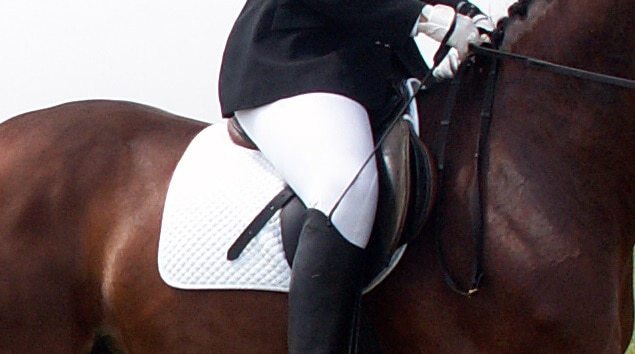Are you the right weight for your horse?

With one in four adultsin the UK classed as obese, should we be worrying about the impact of our weight on our horses?
Right weight
This was the question posed by the British Equestrian Federation (BEF) and World Horse Welfare, who organised a meeting to discuss how we can ensure riders are an the right weight for their horse.
Senior representatives from across a range of equestrian organisations attended, includingthe Association of Show and Agriculture Organisations, Association of British Riding Schools, the British Horse Society, British Eventing, British Dressage, the Pony Club, Riding for the Disabled Association, Saddle Research Trust, Showing Council and Society of Master Saddlers.
Mounted correctly
“It was fantastic to get this wide group of people together to try and address an issue that has remained on the ‘too difficult’ pile for too long,” said World Horse Welfare deputy chief executive Tony Tyler, who chaired the meeting.
“This is certainly not about stopping people from riding – it is simply trying to ensure they are mounted correctly so their horse is not compromised.”
Problems caused by a rider too large for their horse or pony include muscle fatigue and loss of muscle tone which compromises skeletal frame; stumbling and/or falling; compromised performance; behavioural issues; and horse and rider safety.
While riding should remain accessible for everyone, the group agreed the industry needs to be provided with tools to ensure riders are an appropriate weight for their horse.
Benefit horses
“If the right guidance can be put in place both horses and riders will benefit; after all you won’t get the best performance or enjoyment from your horse if it is struggling to carry you,” said Tony.
“The group felt that there were ways forward that can reduce the number of horses affected, to the obvious benefit of the horses.”
As a result they are now looking for ‘innovative ways’ riders can assess if they are the right weight for their horse. They also want to start rider fitness initiatives and develop guidance to help judges and officials ensure the horses’ welfare remains paramount.
Punitive response
According to Jan Rogers from the BEF, training and education is needed rather than a “punitive response”.
“We are keen to help raise awareness of the long-term welfare implications of putting a horse or pony under undue pressure, but are conscious that a ‘one-size’ solution will not be appropriate,” said Jan Rogers from the BEF.
“The group is keen to develop a consistent evidence-based template from which individual bodies’ regulations could take direction.”






